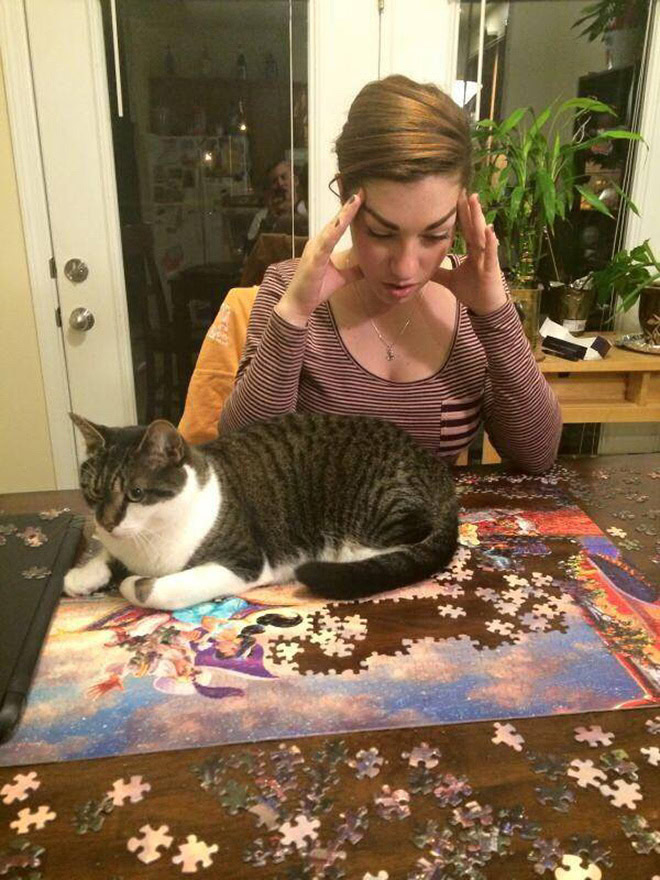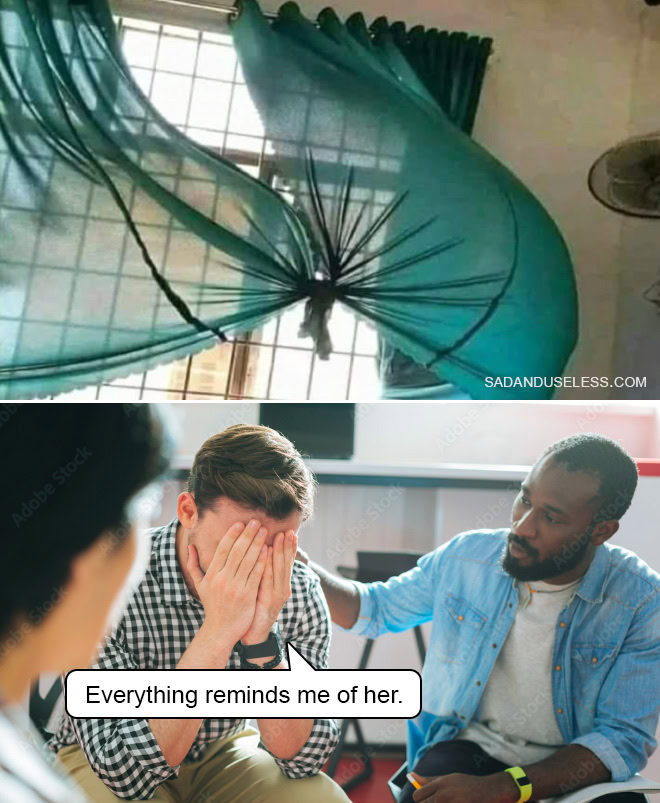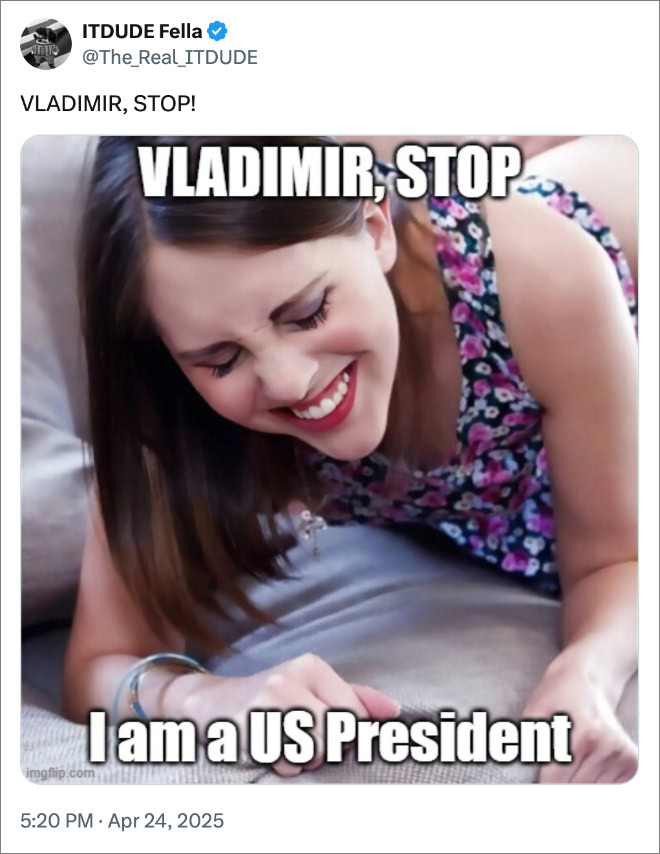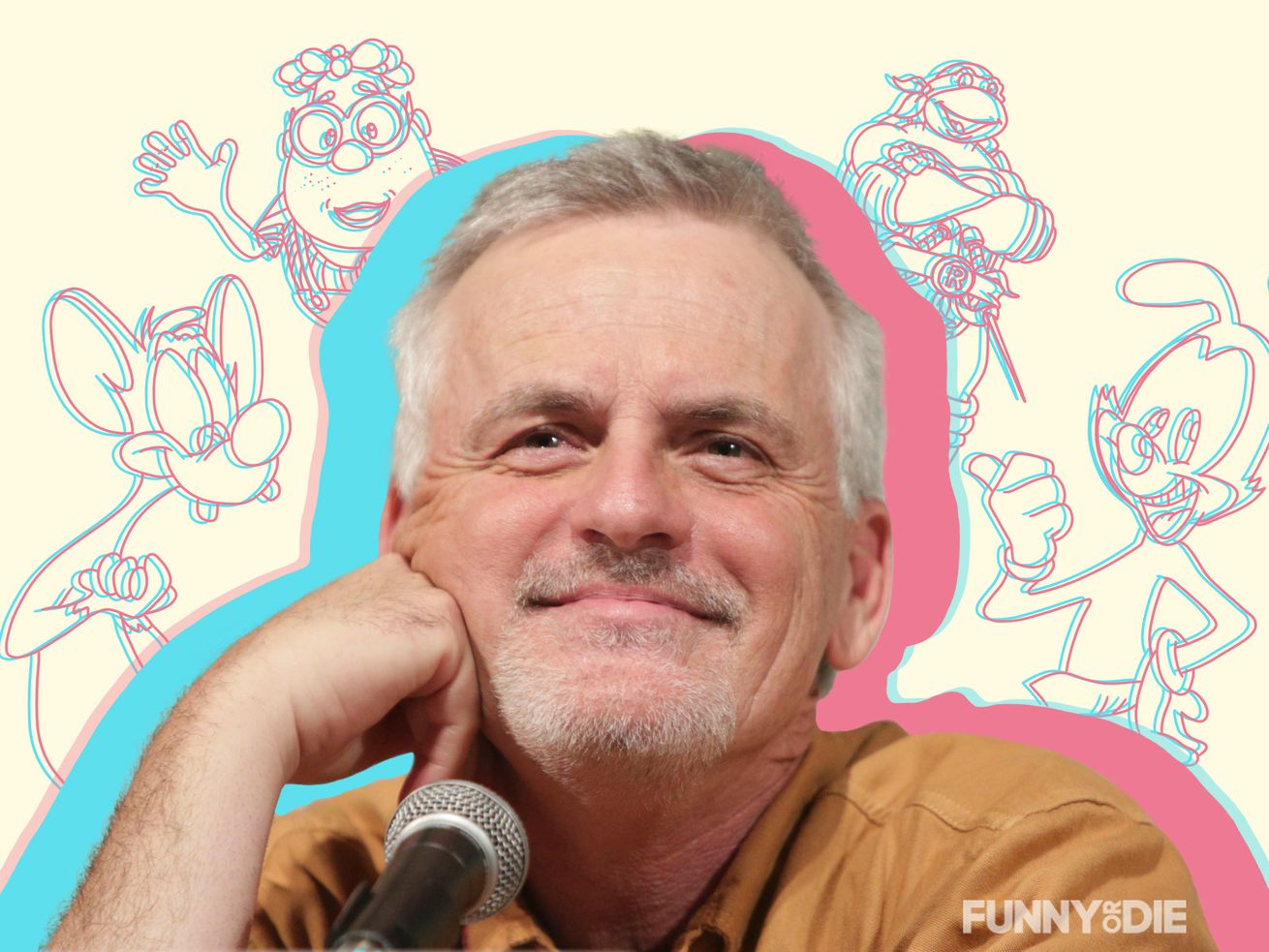 Original artwork by Sloane Hughes for Funny Or Die | Photo acquired from Getty | Original characters property of Warner Bros. and Nickelodeon, respectively
Original artwork by Sloane Hughes for Funny Or Die | Photo acquired from Getty | Original characters property of Warner Bros. and Nickelodeon, respectively
Rob Paulsen has been one of the busiest voice actors in Hollywood for over 30 years, and after recently surviving cancer, he’s got nothing but hope and joy to share with everyone.
Whether you know it or not, Rob Paulsen has been a part of your life for a very long time.
We don’t have the time to go through all the films, video games, and upwards of 2,000 television programs he’s been in, but you probably know him from Pinky and the Brain, Animaniacs, and Teenage Mutant Ninja Turtles. Although it’s been a minute since we saw Pinky or Yakko or Dr. Scratchansniff on television, it would be hilariously wrong to assume that Rob has slowed down in any capacity. If it’s a cartoon, there’s a good chance Rob is an integral part of it; today, Rob plays the same role in your kids’ lives as he did in yours.
This autumn Animaniacs is returning after almost 25 years; a momentous and wonderfully nostalgic revival that is made even more meaningful once you learn that less than a year prior to recording the new season, Rob had just faced cancer and come out the other side. He spoke with Funny Or Die to discuss the reboot of Animaniacs and what it means to him, his journey through throat cancer, how it impacted his career, and the magic and power of voice acting.
This interview has been edited and condensed for length and clarity.
Pinky and the Brain is my mom’s favorite show. Growing up, we had a huge box of blank VHS tapes, and we had to tell her whenever it was on so she could run in and record it.
That is the sort of compliment that is impossible for me to quantify. That’s the best aspect of this gig. If your mom was here, and I said, “Helloooo, nurse!” Or “Narf!” — look what happens to your face! It’s the coolest thing in the world. Honestly, you’ve already made my day.
Speaking of Animaniacs, I don’t know if you knew this, but Animaniacs is coming back!
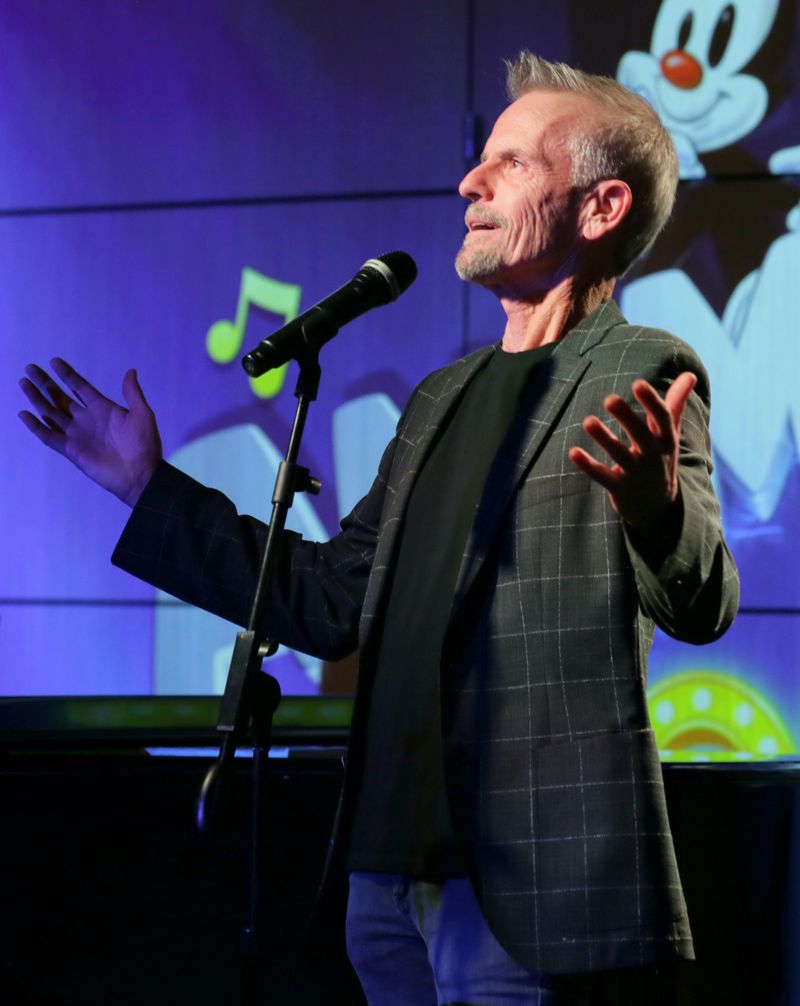 WireImage
WireImageYou know you’re the second or third person who has said that! It’s coming back on Narf-vember 20th. Isn’t that exciting? I’ve been in LA for 42 years, doing cartoons for 35, and the opportunity to bring back a show that affects people the way it does, is incredible. We don’t sound any different. We look different, but that doesn’t matter. That’s the magic of animation. A brand new platform, a 25 year gap, Steven Spielberg again, and the original voice actors. This is a really remarkable experience for us as performers to be able to, with the King of Hollywood, say, “Yeah, let’s do this again,” because the audience is exponentially larger than it was when you and your mom started watching it, and all it does, just like Funny Or Die, is make happy.
Even though Pinky the Brain and Animaniacs haven’t been on TV for over 20 years, you’ve stayed with those characters through other interviews and your podcast, and now Animaniacs in Concert. Does bringing them back to TV feel strange or new again, or does it feel like those characters never really left you?
The latter, because those two shows really hit millions around the world right in the heart and the feels and the funny bone. I have been doing a lot of in-person gigs, Animaniacs in Concert, I don’t even know how many conventions I did before COVID-Con 2020. The lines sometimes go out the door, and the breadth of the audience for a show like Animaniacs is huge, it’s 60-year-olds, 70-year-olds, 10-year-olds— and that’s the best part. You watched Animaniacs with very hip cultural references, very subversive humor, and now you can watch it as a grown adult and go, “Oh my God, I had no idea what the hell that meant!” And that’s all by design. The edict from the beginning was to not condescend the audience, and Mr. Spielberg and Tom Ruegger and the folks who created it were absolutely right. So yeah, it really was just like getting back on the bike.
I reminded Tress MacNeille, one of my dearest friends in the world and now without question the most prolific voice actress in Hollywood, of a time we were in an Animaniacs recording session. Actors would sit behind one another and when it was time to do their line, they would switch and go to the microphone. I remember looking at Tress and I said, “Boy, honey, take a picture of this moment. It just don’t get no better than this. Look who’s in this room with us. The best of the best.” So here we are 25 years later, the first day we got back to recording I was sitting next to Tress again, it was a little bit sentimental, and I said, “Honey, do you remember?”
She finished my sentence, “When you said it don’t get no better. But it does, doesn’t it?”
And it does, because of people like you, the kindness of Funny Or Die, the kindness of your mother, and the millions of people who could read this. It didn’t just go away, people didn’t go, “That was a fun show. Oh, well I got to go on with my work.” They’re like, “Oh my God, it’s coming back? I am so in.” How do we quantify that compliment? We are beyond excited about this. It’s a big deal.
That’s so awesome. Is part of that sentimentality for you, personally, influenced by the fact that you’re now coming back and doing a second iteration of this show after something as life changing as beating cancer?
Yeah, how about that?
Which, by the way, congratulations. That’s amazing. We’re all so glad that you’re here.
Me too. I will die someday, but not from throat cancer, and I will do my very best not to die during the interview. It is Funny Or Die, and I prefer the former.
That’d be good.
No, man, honestly, thank you for bringing that up. I’m a lottery winner and I know it. It’s one thing for an actor to be able to come to Hollywood, even though ostensibly I came here to do live action and that’s what I was doing, then animation called, I jumped on it, and it turns out that my desire to perform, be funny, be creative, is no different at 64 than it was at 14. My gig has been nothing but joy. Nothing.
Now, a couple of years ago, I got thrown a bit of a curve ball— I had cancer. Not just any cancer, throat cancer. But I was in my late fifties when I was diagnosed, I had already been able to do shows decades ago that have left an indelible, joyful mark on the world. So even if the doctors had said, “Look, here’s the deal. Sorry, this is it.” What is it they say? We make plans and God laughs? But that’s not what they said. They said, “We’re pretty sure we can cure you. This is an aggressive cancer, but very treatable, and we got it early.” It was stage III, it had already spread to my lymph nodes and my neck.
They said, “We’re virtually sure we can cure you. But before we do, we almost have to kill you.”
The treatment is brutal. Mouth, throat, can’t eat, can’t even drink. It’s rough. But that was four years ago. I am different. Rob 2.0 is not the same. I will submit that some of the differences are a hassle… I can’t go anywhere without my trusty bottle of water, because my saliva glands are fried from the radiation. I don’t taste food like I used to. But the opportunity to do this show again, and nobody is any the wiser, that was really in doubt. The doctors were like, “Even though the tumor isn’t on your vocal cords, this is a pretty gnarly treatment. Will you be able to speak? Will you be able to sing?” And I can.
The first song I sang for the new Animaniacs is very complex, which is exactly what we like, and when I finished it, I said, “Can we just take a break for a minute? This is a big deal for me, because there was a probably six month period where I wasn’t sure if I could do this.”
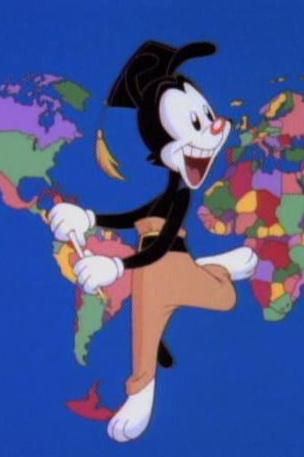
And nobody looked at each other and groaned. It wasn’t that at all. It was, “Man, this is great.” As much as Warner Brothers and Steven and everybody had been so kind to me, it’s show business. If I wasn’t able to cut the mustard as well as the other actors, there would have been no point, probably, in doing the whole thing just to replace me. So even though nobody put any pressure on me, it was a big deal to see whether or not I could handle it. The first job was to save my life, but my life is driven in so many ways by what I’m getting to do with you here today. It’s about creativity and joy and happiness, and Jesus H. Christ, do we need that more now than ever. That was a very big deal, and I’m really glad you brought it up.
The other silver lining —platinum, really— is as a result of my cancer I was asked by the Head and Neck Cancer Alliance —headandneck.org, kids, check that out— to be their 2020 spokes-toon. Last month or the month before, the FDA approved Gardasil as a vaccine against HPV-related head and neck cancers. HPV related head and neck cancers, like mine, have eclipsed cervical cancers in women that are caused by the human papillomavirus. And let me tell you something, kid, if I can vaccinate my young boy or girl so that they live their lives in the fullest way possible, and don’t have to go through this, holy smoke. That’s a big deal. So I get to be the spokes-toon, and I love that responsibility, because nothing is for certain, who knows when I’m going to have another wonderful opportunity, like you’re giving me, to talk about happy, wonderful, joyful things. Some of the joyful-est of which is that, guess what, man, you can go get this shot, or get it for your kids, or at least check it out. It’s pretty remarkable.
Just like everything else, once the dust settles, you look back and go, “Man, I’m kind of glad I went through that.” I don’t know that I’d choose to do it again, but if you got to go through it, you might as well go with good that comes out of it. Here I am talking with you about happy, joyful stuff, and a big part of it is the fact that I had cancer. So I’m grateful really.
That’s such a wonderful outlook to have, and as someone who has never had cancer and never experienced that firsthand, it’s truly inspiring.
That’s the idea, isn’t it? You’re a young person, and believe it or not, I was actually your age one time. Of course, older people know I was the entertainment at the Last Supper. In those days, I was Shecky of Arimathea. Jesus, what a party. It was great until karaoke, and Judas decided to do “Back Stabbers.” I thought that was in poor taste.
It’s a little on the nose.
Thank you. But yeah, we hear that axiom all the time about “we’re all in this together,” and in your young life and my old life, this is the first time that that’s ever been so true. Every day we see the COVID count. Every day we wrestle with racial issues, gender issues, politics, and we truly are all in this together.
I believe we are here to inspire each other. If my story, my talent, my experience, my career, inspires, that’s what we’re here to do, man.
I’m going to be dead in, what, 20 years, maybe 25. Maybe next week. I don’t know. But if the dent that I leave makes you inspired for five seconds to pay it forward, that’s it. It’s not about money. It’s not about an action figure. At the risk of getting too existential, it’s about our utter humanity. In my view, one of the best ways to pay my humanity forward is via humor, which ultimately leads to kindness, which ultimately leads to acceptance. It’s pretty difficult to hate someone when you’re laughing with them, irrespective of their gender, or their color, or their nation of origin. What’s funny in Iceland is maybe not necessarily as funny in Flint, Michigan, where I’m from, but it doesn’t matter.
When people laugh, and when you can tap into that, it allows for a few barriers to come down.
So I’m glad that that’s inspirational. Funny Or Die is that for millions of people, and you guys are way ahead of the game. I’m very proud of sitting here and talking to you about it.
I wanted to ask you more about your improv background and time at Groundlings. How has sketch comedy impacted your journey as a voice actor, and if you hadn’t gone to Groundlings, do you think that you would have found the same success you have now?
Great question. I need to qualify that a bit. I went to Groundlings to study, but what happened was that by utter accident, while I was there to take some classes, I got some actual Screen Actors’ Guild paying gigs, doing ADR and looping on movies with a killer loop group, like Cassandra Peterson, Phil Hartman, John Paragon, Tress MacNeille, Nancy Cartwright. They’re terrifyingly inspirational.
I got to work and learn with these people who, unbeknownst to me, were in the A group that would eventually produce Cheri Oteri and Will Ferrell, and had already produced Laraine Newman. So I was never in The Groundlings, but I was in with them all the time. The experience was utterly invaluable, particularly with Phil, and having the great good fortune of knowing Phil before he became Phil was a remarkable thing.
I was working with Phil, Corey Burton, and Nancy Cartwright on Spaceballs back in, ‘84, ‘85, and Mr. Brooks comes into the ADR stage and says, “In this next scene here, Bill Pullman crashes on the sand planet, and we got all these critters walking around in hoods going, ‘Dink, dink, dink,’ so we call them the Dinks. All right? One of the Dinks walks up and gives Bill water. Now, we gotta have a name for him, so who’s got something?” I looked at Phil Hartman, and I said, “Hey, how about Gunga Dink?” Now, you probably know, there’s a very famous poem by Rudyard Kipling called Gunga Din, about an Indian water boy who brought water to injured soldiers. So, I thought, Gunga Din, Gunga Dink. Right?
That’s such a fast reference to pull.
I told Phil, and he said, “Oh, Robbie, oh, dude. You got to tell him. You never know. This is Hollywood,” and I said, “I don’t know, man.” It’s Mel Brooks, this guy’s a god to me! So, “Anybody got anything? Phil?”
“Mr. Brooks?”
“Yeah. Whaddaya got, son?”
“Not me, but my friend Rob’s got something. Tell him, Rob,” and I said, “Well, how about Gunga Dink?” Everybody laughed. Even the dialogue editor, the technical woman, I remember, laughed. Laughter settles down, Mel looks at me, says, “What’s your name, son?”
“Rob. Rob Paulsen, sir.” He goes, “Rob, in my business, wit is shit. Funny is money. Who’s got something else?”
[GASP] NO
Yeah, I did that. Broke my heart. We broke for lunch, and Phil took me aside and said, “Hey, Robbie, you know what happened? You were funnier than Mel Brooks,” and I said, “No, no,” and we went back and forth, but it doesn’t matter. The point is, Phil took me aside and made me feel better. Then, years later, our mutual friend has Mel on his podcast, and he cites this moment and says, “Mel, I got to ask you about a personal friend of mine that you worked with on Spaceballs.” He tells him the story, and Mel, to his credit, laughs and says, “You know what? That sounds like something I’d have said. Sorry about that, Rob. That was pretty funny.”
All those decades later, long after Phil’s gone, it was Phil who was right. It was Phil who made me feel good about it.
Phil was so much more to those who were lucky enough to know him. We knew that he was going to be Phil Hartman. The day he got Saturday Night Live, I got a phone call, like many others, “Robbie, I got it,” and it was just glorious to watch his star rise.
That’s why The Groundlings are a big deal to me. I learned at the feet and the voices of the masters because I was surrounded by them. I just didn’t know it at the time. They all turned out to be The Groundlings, and whether they’re living or dead, they’re some of my very best friends. Tress, Paul Reubens, Cassandra, Laraine, Phil, Phil LaMarr, the best of the best, the kindest, utterly egoless, nicest people that you’d ever want to meet.
That’s an amazing experience.
It is. Thank you. You have got so much to look forward to. That’s what I love telling young actors and entertainers. It’s the truth. You’re only limited by your creativity and the kindness of people who hire you. Then you’re going to be able to tell people these really remarkable stories, and when you reflect on them, you’re going to go, “Holy shit. What a run I’ve had.”
At this point in your career, with all the incredible things that you have already done and now with this new kind of lease on life, what’s the next thing for you? Is there anything on your career bucket list that you haven’t done?
I would love to be able to transcend the celebrity ceiling, vis-à-vis voice talent. What I mean by that is I’ve done, I don’t know, 2,500 half hours of animation, Ninja Turtles, Animaniacs, Pinky and the Brain, Jimmy Neutron, The Fairly Odd Parents, The Mask, The Tick, Mighty Max, Smurfs, G.I. Joe, Transformers— characters that, I’d argue, you’d be able to go to far flung places of the world and mention, and most everybody would say, “Oh, yeah. We know Raphael, we know Ninja Turtles,” and maybe not even know Brad Pitt. I think that’s also true of characters like Bugs and Homer.
There will always be cachet to visual celebrity. I’m not going to change that. However, there is something to be said about the authenticity of animated characters.
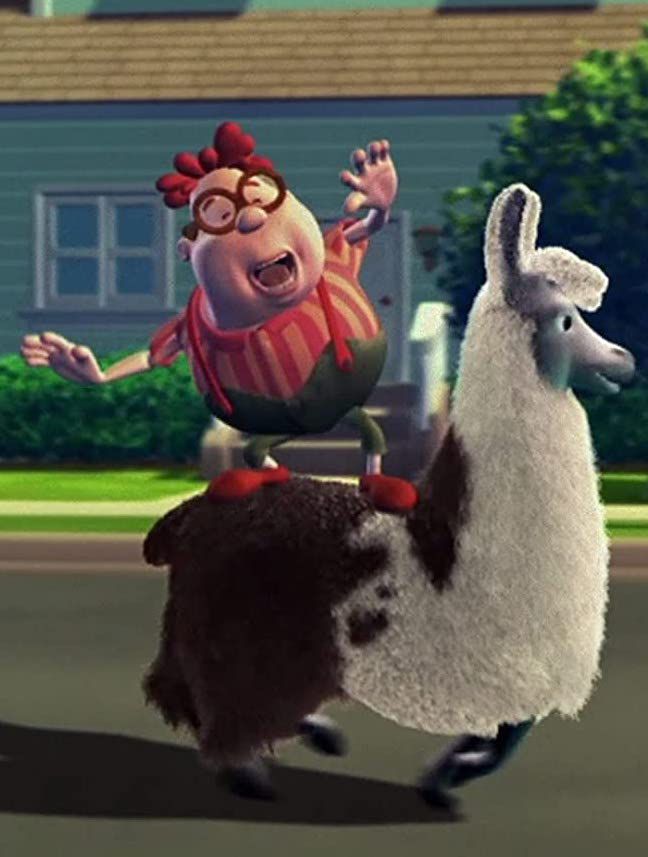
Steven Spielberg chose Tress MacNeille, Maurice LaMarche, Jess Harnell, and yours truly for a very important reboot, because it’s important to him. Steven, like the audience, understands that if the original voice actors are available, why would you hire Liam Neeson to be Yakko, or Peter Dinklage to be the Brain? It’s not about that. The Jimmy Neutron movie made 100 million bucks, no celebrity talent, nominated for an Oscar. Then I did another movie a couple years later called The Ant Bully with Meryl Streep, Nic Cage, Alan Cumming, Paul Giamatti. Right in the dumper.
On my bucket list is to get to a point where people recognize my name and my face and put the two together. I would like to be part of the vanguard who can say that Hollywood is talking to real, experienced voice talent to work in high-level animated pictures instead of Brad and George and Justin, because, frankly, we might be better in that realm; that realm is not about celebrity.
Because the truth is, if I was a guest on any one of those big late night shows, I know that as soon as I open my mouth and say, “Hellooooo, studio audience,” I got them. Before I punch my ticket, if I can get on any of the major talk shows, and maybe that leads to a major motion picture, an animated picture, that’s what I want to do, because talent is talent. Authenticity is Authenticity. All these people are so talented, and millions know their work. They just don’t know their faces.
A couple years ago I saw the trailer for the Winnie-the-Pooh movie with Ewan McGregor and thought, thank God Disney did not replace the voice of Winnie-the-Pooh. Jim is Winnie-the-Pooh, and has been for 30 years. The trailer was fantastic, emotional, warm, precisely what Winnie is about. So, I called Jimmy, and I said, “Mark my words. If there’s ever an Oscar for voice talent, you could really be in the running.” A month later, there’s a Vanity Fair cover article that says there is an Oscar-worthy performance in Christopher Robin, and it’s not Ewan McGregor. It was about Jim’s performance.
People are starting to understand it. Things are changing. I would love to see one of my coworkers at that level be nominated for an Oscar and say, “Wow. Acting is acting, and it doesn’t have to be with your face.”
When Jim speaks to a young person with autism, who has been brought by their parents to meet him, as Winnie-the-Pooh— I don’t even know how to tell you. The parents are 10 feet behind them, absolutely a mess, but they are transfixed on Winnie-the-Pooh coming from the mouth of an older gentleman. It is absolutely perfect, and it has nothing to do with Jim Cummings. It is about the authenticity of the character, and that is, I think, what needs to be known and remembered about animated characters. When it’s done right, when the visual art works with the performance art, it is timeless and impactful way beyond what I ever knew until live events and nice people like you. Thank you for the opportunity to explain that.
Thank you. It’s so weird because as you’re saying everything, I’m thinking, why isn’t that already the case? Cartoons are so powerful. This is so powerful.
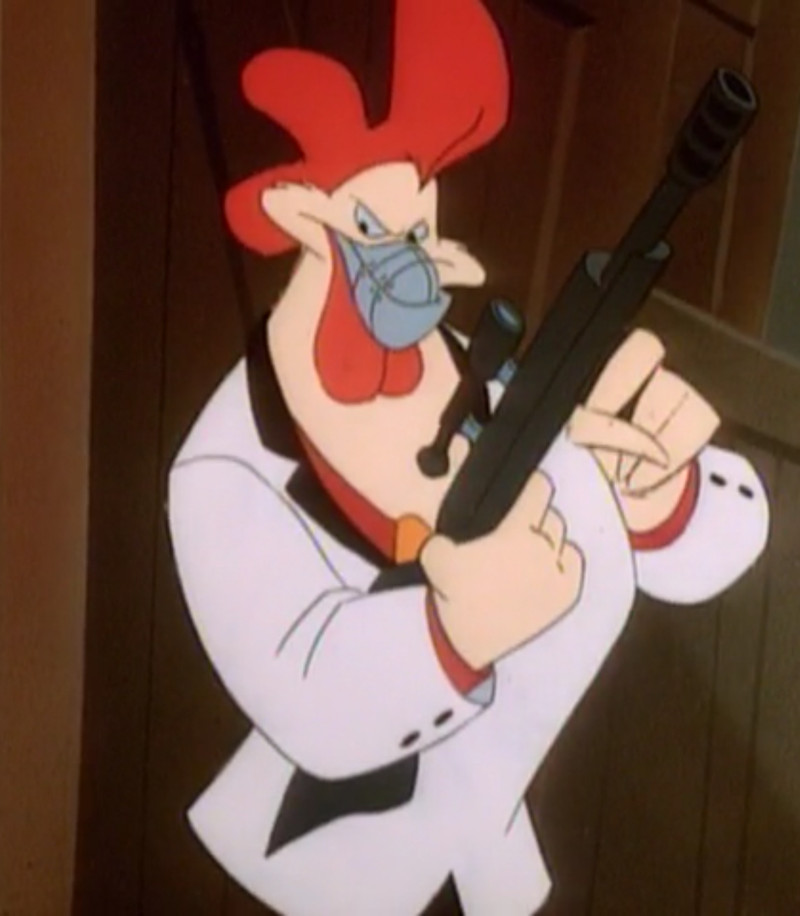
The fact is it’s going to change with younger guys like you. Every time I go to pitch a show at Hulu, or Netflix with the people who produced the show, what ends up happening is people go, “The pitch was great. Rob, can you hang on a second? Listen, I have your book—” or, “My mom sent me my old Ninja Turtle pillowcase. Would you sign it for me?” I’m in Hollywood, and here’s someone in their thirties who’s gone out of their way to make sure they have memorabilia for me to sign, whether or not they buy the show. That tells me something. I can’t even tell you the number of times that I’ve met people who’ve said, “Mr. Paulsen, I did three tours of duty in Iraq and Afghanistan. I would go out on patrol for two days at a time, and when we’d come back to hang out for a couple days, we’d put on Pinky and the Brain or The Simpsons or Darkwing Duck, because that is what grounded us, and you’ll never know what that meant to me.” Are you kidding me? How do I wrap my brain around that?
Thank you so much for all your thoughtfulness and insight, and for sharing so much that is so personal to you. This was wonderful
I’m so glad. Thank you and your audience for, firstly, understanding why I was aptly cast as Yakko, because I haven’t shut up for a whole goddamn hour, but honestly, you and your audience will never know… You will never know what it means to me, how you respond to my stuff. What really got me through my cancer was the number of people who got ahold of me once they found out what I was dealing with. I didn’t advertise it. I sure as hell didn’t want sympathy; everybody has their stuff.
But I started getting emails, phone calls, from all over the world, from parents whose children didn’t make it but Yakko, or Pinky, or Raphael, had talked to them 20 years ago.
Literally hundreds of letters and cards and videos, pictures that say, “Here’s the last picture of our boy when he was talking to Raphael on the phone. He lived another two years, we buried him with his Turtles shirt. We just want you to know what turtle power really is, and that you have it in you.” They didn’t know anything about my cancer’s survivability. All they wanted to let me know was the power of those characters, and to remind me what those characters did for their children, and honest to God, if that didn’t give me enough courage and strength to get through it, shame on me.
That’s the power of those characters. They are utterly joyful, and they get people through the most impossible circumstances, whether it’s being shot at on behalf of all of us, or holding their child’s hand while he or she moves on to the next plane.
That’s what this is about. It transcends action figures, money, rating points— and I’ve lived it. I know it now. My cancer experience showed it to me.
So, it is I who am the grateful one. You gave me the opportunity to share my story, and my ultimate response is that laughter is the best medicine, folks, and the cool thing is you can’t OD, and the refills are free. So, for God’s sake, keep it up.
Thank you for taking the time to chat today, Rob. Before we go, what was the name of your book?
It’s called Voice Lessons: How a Couple of Ninja Turtles, an Animaniac, and Pinky Saved My Life, and by the way, this a multipurpose book because if you don’t like it, and you have a table that’s wonky, you can shove it right under the leg of the table. Take care. And please tell your mother I said narf.
Catch all the original episodes of Animaniacs on Hulu, and get ready for the 2020 revival featuring the original voice cast, produced by Steven Spielberg, launching this November.
Follow Rob on Twitter, Instagram, Facebook, and check out everything he’s up to from live shows to charity partnerships on his website.


